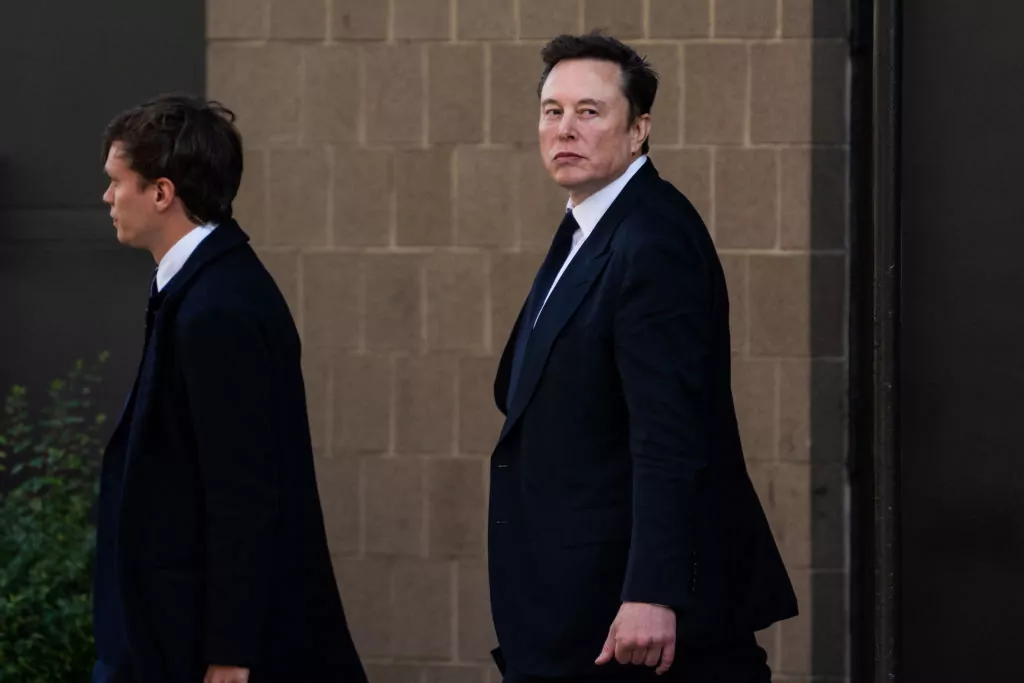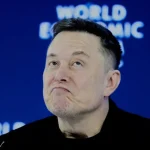

Elon Musk could have retired after making his first fortune with PayPal. He had more than enough money for a lifetime and might have devoted his remaining years to spending it. Instead, he brought his energy and enterprise to Tesla, then SpaceX, then X, and is now throwing himself with the same intensity into politics.
He is a welcome antidote to MAGA’s nativism and protectionism. A supporter of free trade and high-quality immigration, he uses X to post clips of Milton Friedman and quotations from Friedrich Hayek (placed archly alongside pictures of the beautiful Salma Hayek). Indeed, if I have a criticism, it is that he is spending too much time posting and too little time colonizing Mars. Then again, if anyone can multitask, it’s Musk.
Not satisfied with roughing up American and British politicians (he understandably loathes the United Kingdom’s illiberal prime minister, Sir Keir Starmer), Musk has now lobbed a hand grenade into German politics, writing in Welt am Sonntag, “Only the AfD [Alternative for Germany] can save Germany.”
The subsequent explosion saw that newspaper’s comment editor resign and prompted a series of ministers to condemn what they called unwarranted foreign interference. So far, you might think, so Musk. He specializes in challenging liberal pieties, horrifying the cultural elites by saying things that, to a lot of people, don’t seem especially controversial.
However, there is something off-key about this latest intervention. The AfD is not simply a populist party that opposes immigration, akin to, say, Nigel Farage’s Reform UK. It has much darker tendencies, combining left-wing economics and distrust of American capitalism with a creepy admiration for Russian President Vladimir Putin. It has, among other things, taken the lead in opposing the expansion of Musk’s own Tesla plant in Brandenburg.
The party did not start out that way. When the AfD was launched a decade ago, it was mainly a campaign against the euro. Its first leaders were economists, university professors, and businessmen. I was glad to welcome them as fellow members of our conservative caucus in the European Parliament.
However, those high-minded academics were soon ousted by a leader who wanted to focus narrowly on hostility to immigration. Then, she was ousted by someone even more hardcore. The party crossed the line between being anti-immigration and anti-immigrant and was shunned by most of the other European parties that are habitually labeled right-wing.
Does that mean that the AfD wants to reintroduce the Nuremberg Race Laws or annex the Czech Republic? Of course not. However, not being literal Nazis is hardly setting the bar high.
“The portrayal of the AfD as rightwing extremist is clearly false, considering that Alice Weidel, the party’s leader, has a same-sex partner from Sri Lanka,” wrote Musk. “Does that sound like Hitler to you?” As a matter of fact, there were plenty of gay Nazis, most famously Ernst Röhm. But the problem is not that the Weidel is a Nazi. She is not. It is that the AfD feels closer to Putin than to the West. The party blames the Ukraine war on NATO, boycotted Volodymyr Zelensky’s visit to the Bundestag and argues that Americans every bit as guilty of war crimes as Russians.
There is an ideological ocean between AfD and Argentine President Javier Milei, over whom Musk drools. Milei is pro-NATO, pro-Ukraine, pro-Israel, pro-trade, pro-immigration and pro-U.S. That difference has always been ignored by left-wing commentators, who are prone to the self-centered fallacy that holds that if you disagree with A and separately disagree with B, A and B must be the same.
However, it is also missed by many on the Right nowadays, who see only the disruption, the move-fast-and-break-things radicalism. Yet, disruption is not intrinsically beneficial. Hayekians and Leninists equally threaten the corporatist consensus, but that does not make them equally laudable.
Conservatives, of all people, should understand this. The clue is in their name. As Roger Scruton put it: “Conservatism starts from a sentiment that all mature people can readily share: the sentiment that good things are easily destroyed, but not easily created.”
CLICK HERE TO READ MORE FROM THE WASHINGTON EXAMINER
Our nation-states, laws, unwritten social norms, institutions — these things have come down to us as the accreted work of many generations. We do not own them as much as hold them on a repairing lease, aiming to pass them on intact to our children.
I’d add to that list the Western alliance, political pluralism, civility in public life, and equality before the law, regardless of race or ancestry. There comes a point when punishing the elites turns into punishing the nation. Forget that, and we are lost.







